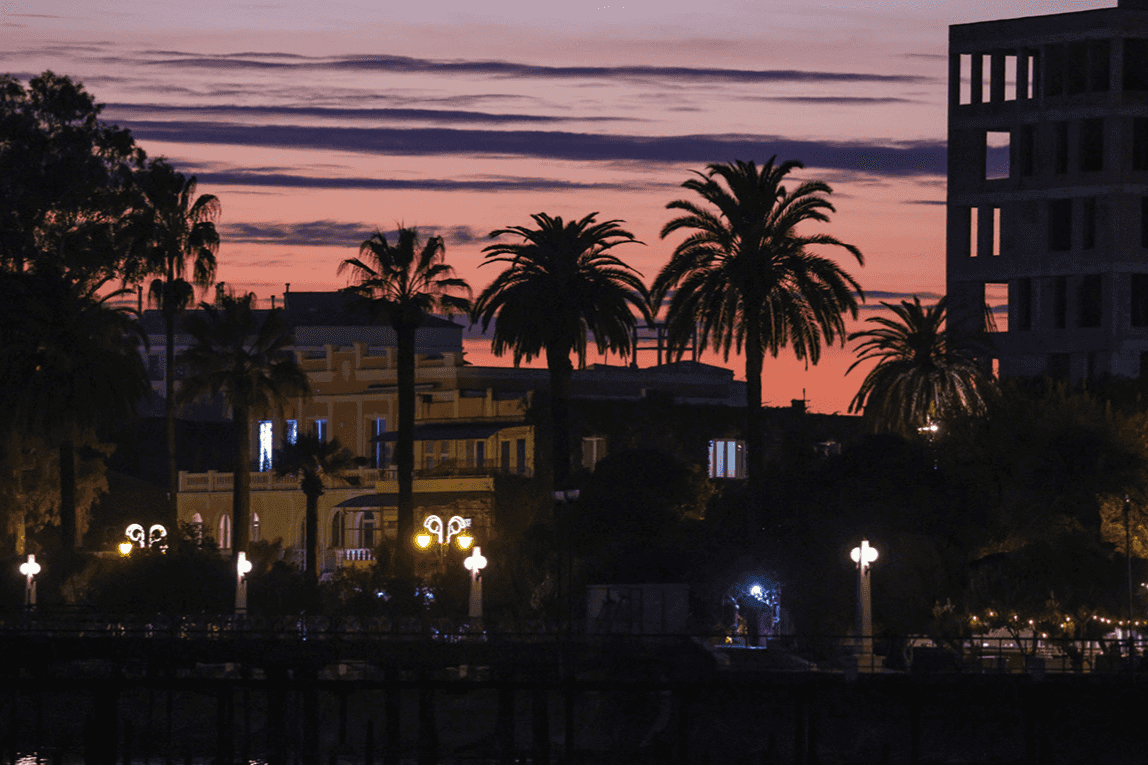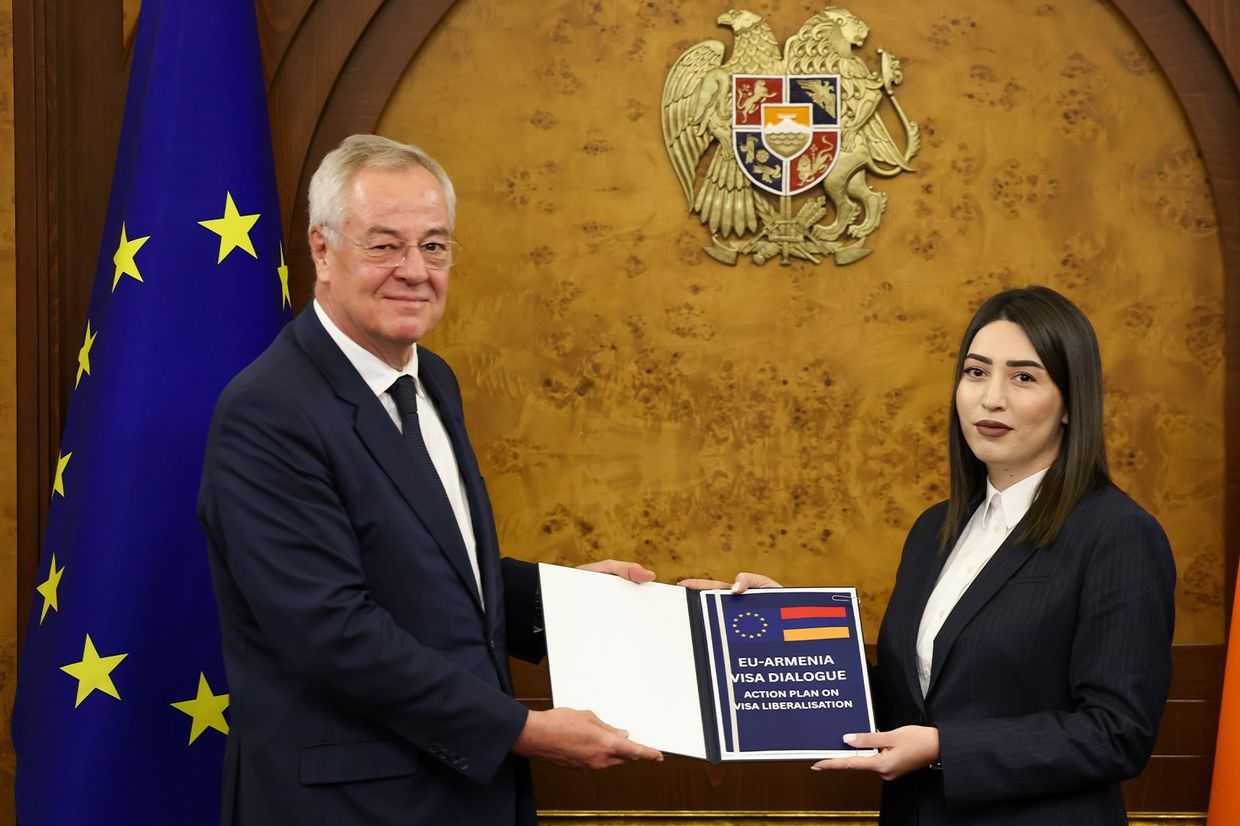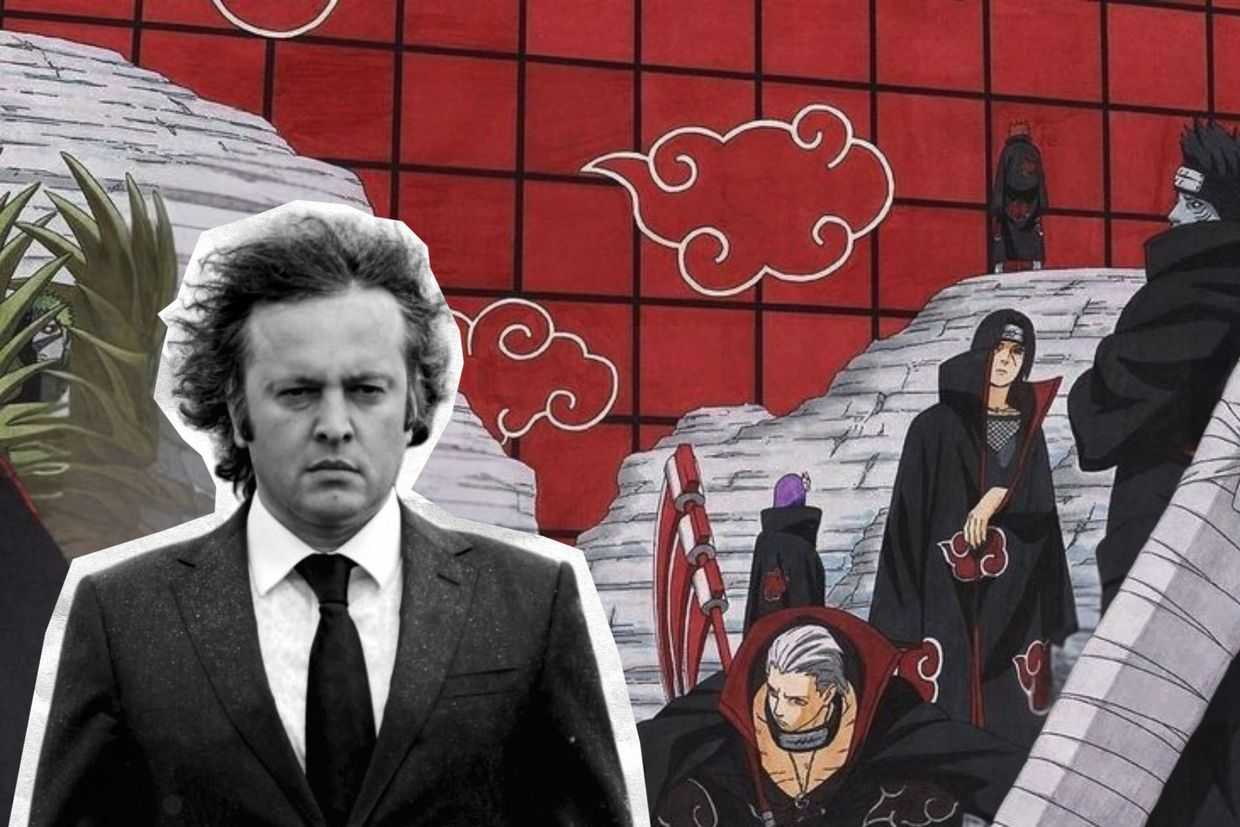
Nearly half of the Georgian public think that they or their family members are under government surveillance at least some of the time.
Georgia has consistently had controversies around surveillance over the past two political administrations, as both the United National Movement and Georgian Dream governments have had extensive access to communications.
In September 2021, a massive cache of files allegedly belonging to the State Security Services (SSG) was leaked, causing a scandal in Georgia and stirring fears of mass surveillance among the public.
[Read more on OC Media: Datablog | Georgian public opinion on the SSG files]
Though Georgian Dream initially made some reforms in this area upon coming to power, recent legislative changes have largely rolled back on this progress. In light of the consistent scandals, it is perhaps unsurprising that nearly half the public thinks that they are being surveilled in one form or another, according to a recent survey CRRC Georgia conducted for the Social Justice Center.
The survey asked respondents how much they felt that the SSG surveilled them or their family members in everyday life through the following means:
- Listening to their phone calls;
- Monitoring their social media activity;
- Informants in their neighbourhood, community, or workplace and;
- Physical surveillance.
The data suggest that the public is most likely to think that security services listen to their phone calls, with 36% reporting they believe this happens sometimes or always.
Social media monitoring was the second-most common form of surveillance people believed to be subject to, with one in five (20%) believing this happens sometimes or always. Approximately one in six (17%) believe that there are government informants at their workplace, in their community, or in their neighbourhood. Direct surveillance is believed to be least common among the public, with only 6% reporting they believe this happens to them sometimes or always.
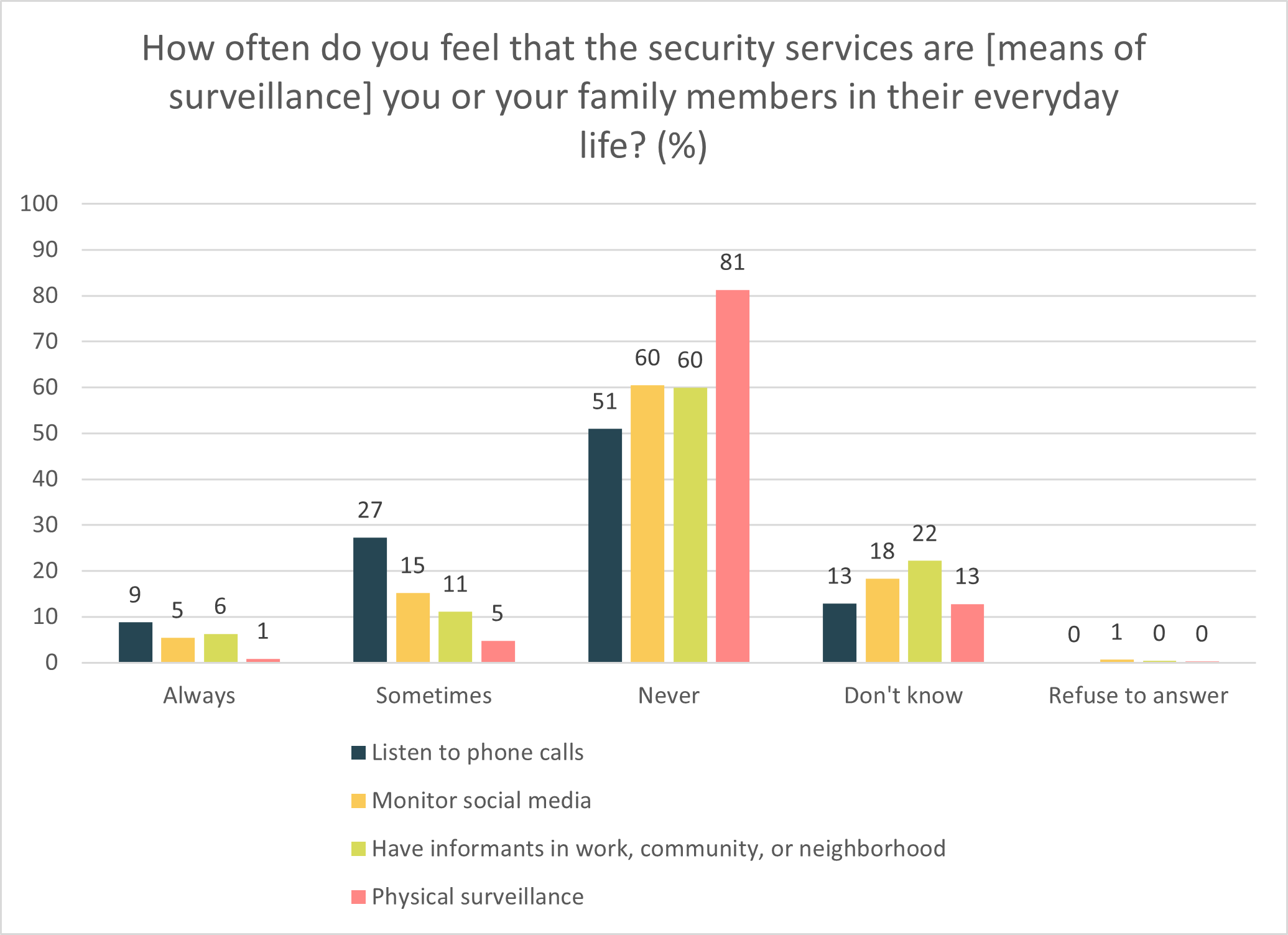
Overall, 44% of the public reported that they believe the government monitors them in one of the above manners. One in five (21%) named one means of surveillance on the survey, one in eight (13%) reported two means of surveillance while one in ten (10%) reported three or four means of surveillance.
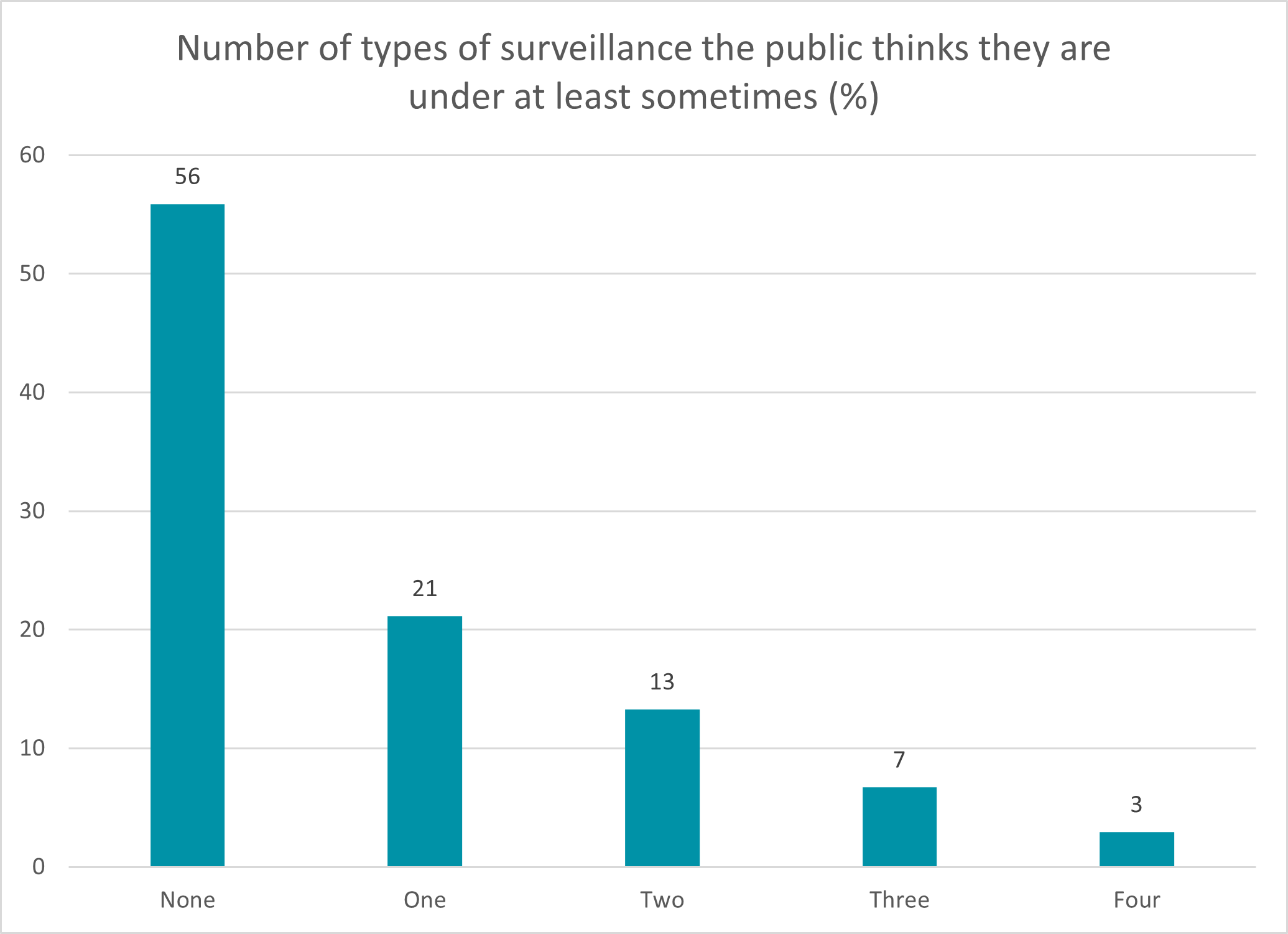
When the data is broken down by social and demographic variables, a number of patterns emerge: first, older people (55+) are significantly less likely to believe they are under surveillance than those between 18–34 or 35–54.
Second, people who support the opposition are 25 points more likely than Georgian Dream supporters to believe they are under surveillance at least sometimes. Similarly, nonpartisans are seven points more likely to believe that they are being surveilled than supporters of the ruling party.
A regression that included the above variables did not show any significant differences between men and women, ethnic minorities and ethnic Georgians, IDPs and non-IDPs, wealthier and poorer households, people in different types of settlement, those with differing levels of education, those working and not, and working the public and private sectors.
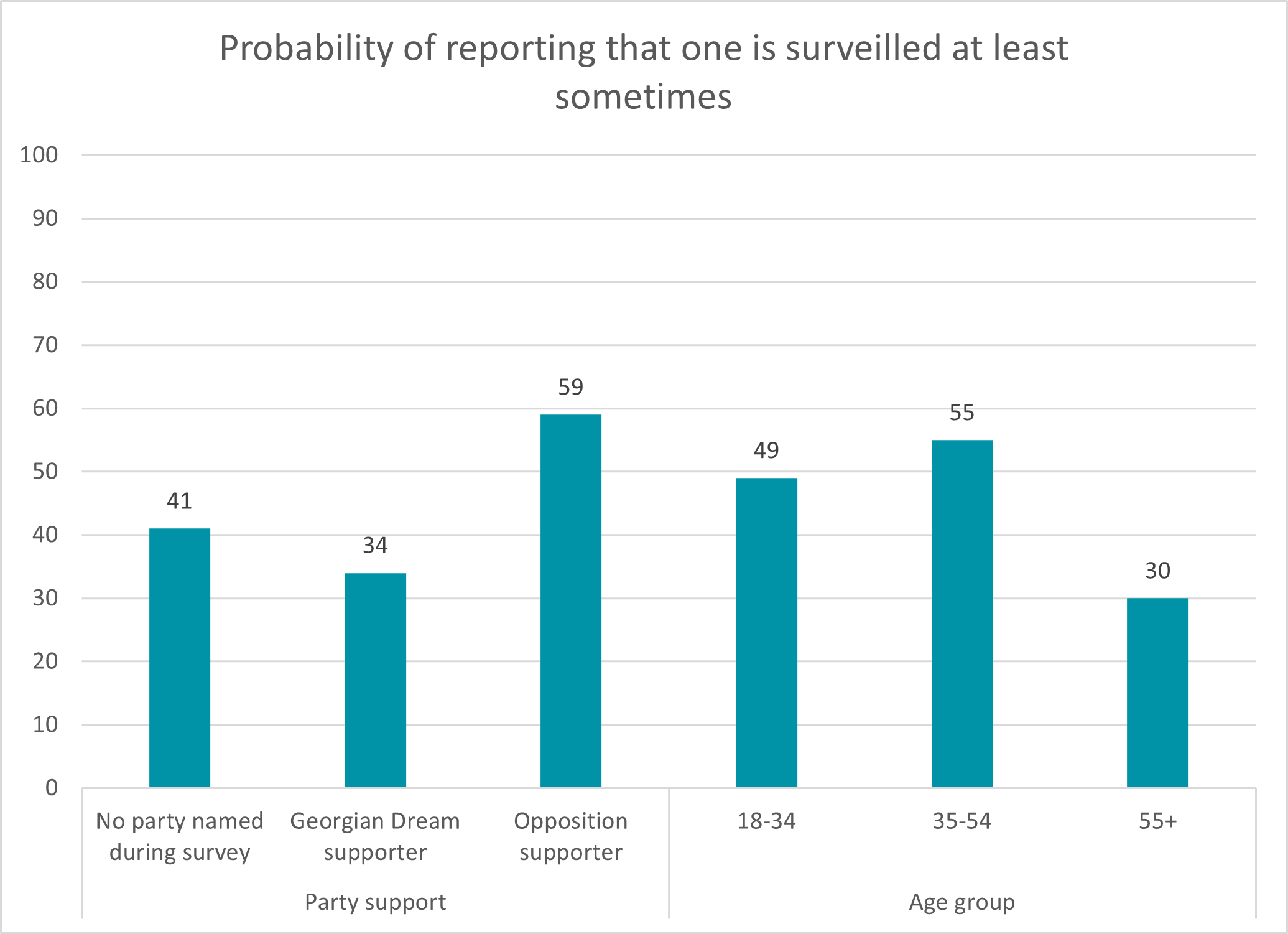
The above data suggests that nearly half the public thinks the government is surveilling them, with opposition supporters being particularly likely to believe the government is watching.
The data in this article is available here.
This article was written by Dustin Gilbreath, a non-resident senior fellow at CRRC-Georgia. The views presented in this article are the author’s alone, and do not necessarily reflect the views of CRRC-Georgia or any related entity.


